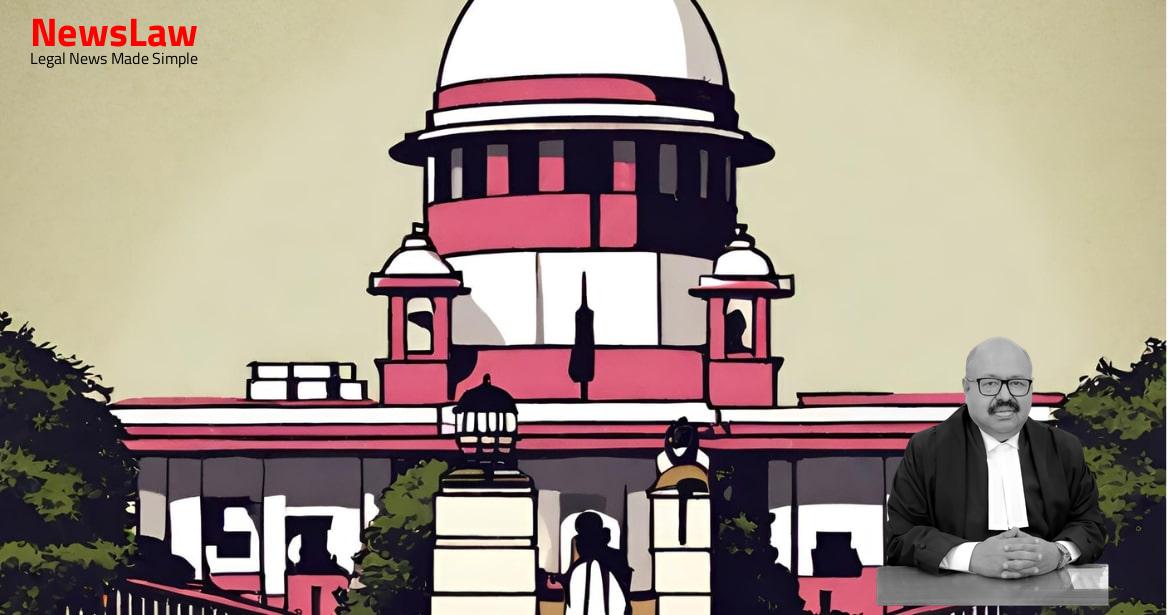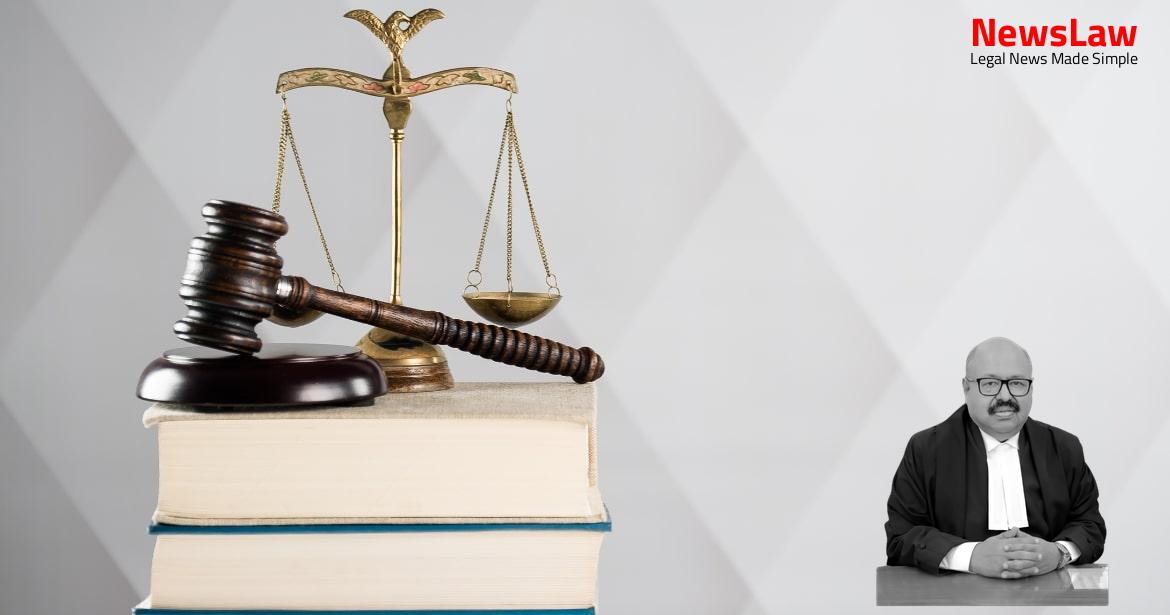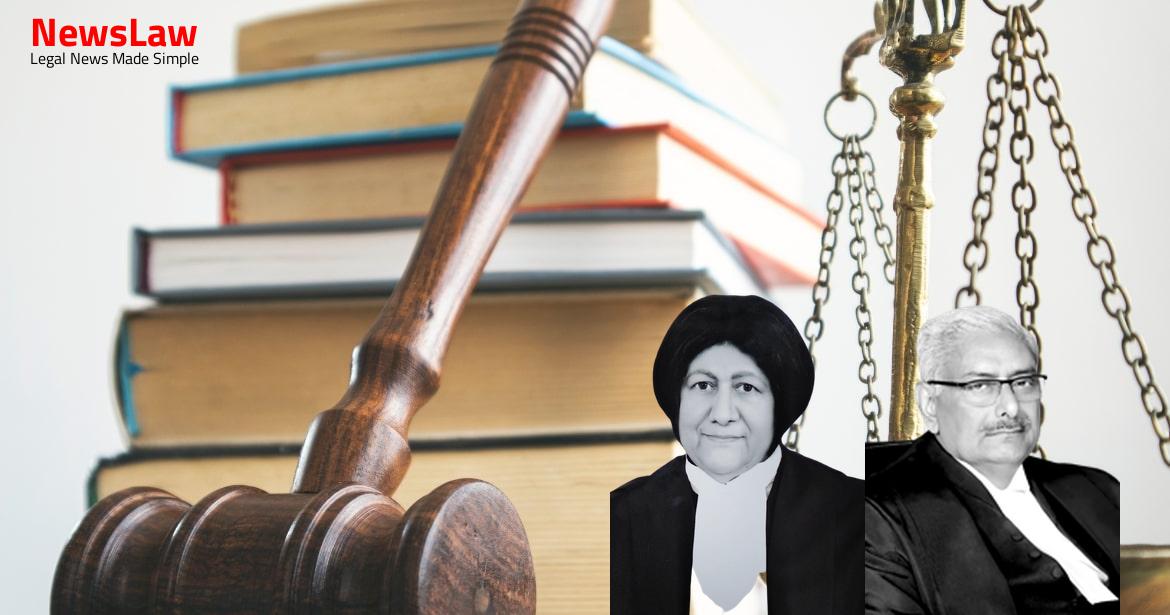In a significant ruling by the Supreme Court of India, the judgment on the determination of the deceased’s annual income in a motor accident case has been pronounced. The case involves heirs and legal representatives of Aranganathan seeking fair compensation following his demise in a tragic accident. The court’s decision has far-reaching implications for similar cases, providing clarity on the factors to be considered for assessing compensation. This landmark judgment aims to bring justice to the affected family members.
Facts
- The claimants, who are the heirs and legal representatives of Aranganathan, are in appeal before this Court due to dissatisfaction with the judgment of the High Court.
- The deceased, Aranganathan, died as a result of a motor accident on May 25, 2001, while traveling in an Ambassador car driven by another person.
- The total compensation awarded was Rs 33,55,000, but the claimants sought an amount of Rs 99,90,000 through a claim petition under Section 166 of the Motor Vehicles Act, 1988 before the Tribunal.
- The deceased derived income from various sources including business and an agricultural land of 36.76 acres, with an assessed annual income of Rs 4,60,298, which was further enhanced considering future prospects.
- In addition to the loss of dependency calculated at Rs 32,50,000 using a multiplier of 13, funeral expenses, loss of consortium, loss of love and affection, and future income through real estate and contracts were also considered in determining the compensation.
- The deceased was survived by his wife and four daughters who are the appellants in the present appeal.
- The accident occurred when another car, a Tata Sierra with Registration No TN 20 Z 1613, collided with the car of the deceased who was 49 years old at the time of the accident.
- The total annual income of the deceased was calculated to be Rs 2,50,000 with various sources contributing to this amount.
- No deduction was made towards personal expenses in the assessment.
- The High Court estimated the income of the deceased at Rs 2,50,000 per annum, reduced from Rs 4,48,790.55.
- Damages under conventional heads, including funeral expenses, loss of consortium, and loss of love and affection, were computed at Rs 70,000.
- A deduction of 1/4th of the total income towards living expenses was made.
- The Tribunal used a multiplier of 13 to calculate compensation amounting to Rs. 58,34,277.
- The total compensation awarded was reduced from Rs 59,04,000 to Rs 33,55,000 by the Tribunal.
- The High Court considered the income declared for the financial year 1997-1998 as the highest and determined it as the annual income of the deceased.
- The Tribunal awarded a total compensation of Rs 59,04,000 with 7.5% interest per annum.
Arguments
- The appellants raised several contentions challenging the High Court’s decision on determining the deceased’s annual income.
- They argued that income from various sources, not disclosed in tax returns, should have been considered.
- The appellants also pointed out other contractual work and solvency certificates that should have been factored in.
- Depreciation costs on fixed assets reflected in the tax return were not accounted for by the High Court.
- The appellants claimed the deceased’s monthly income should have been calculated at Rs 50,000, considering his trade and wine business turnover.
- Referring to a previous judgment, the appellants suggested the Court could reasonably determine the deceased’s income and expenses related to agricultural land.
- The Tribunal’s methodology of calculating agricultural income from land was questioned by the appellants, highlighting discrepancies.
- Mr Jayanth Muth Raj argued that the Court should include depreciation costs on capital assets in the annual income of the deceased based on the tax return for the assessment year 1997-1998.
- Documents were presented by Mr Jayanth Muth Raj reflecting the income of the deceased during the proceedings.
Also Read: CRPF Act: Validity of Rule 27 for Compulsory Retirement – Case of Head Constable vs. CRPF
Analysis
- High Court relied on the income tax return of the deceased for assessment year 1997-1998.
- In the absence of evidence from the appellants, the computation of the depletion in net income of the deceased remains unresolved.
- The High Court’s reliance on the income tax return for assessment year 1997-1998 favored the appellants as it showed a reduction in annual income of the deceased.
- The judgment in New India Assurance did not support the appellants’ case.
- Details from Pavai Wines’ balance sheet for assessment year 1997-1998, including a payment of Rs 1,04,987 for a prepaid license fee to the Tamil Nadu Government, were highlighted by Mr. Jayanth Muth Raj.
- In New India Assurance, the Court emphasized the need to account for the depletion in the net income of the deceased due to payments for engaging managers.
- Evidence must be presented to calculate the depletion in the net income accruing from the deceased’s assets.
- The annual income, including future prospects, is calculated to be Rs 3,95,147.5.
- As per the decision in Sarla Verma v Delhi Transport Corporation, the deduction for personal expenses for a married person with four to six dependents is 1/5 or 20%.
- In the Sarla Verma case, there was no evidence provided concerning the income derived from mentioned properties.
- The multiplier to be applied when the deceased is between the age group 46 to 50 is 13.
Also Read: DAMEPL vs. DMRC: Curative Petition and Arbitral Award Restoration
Decision
- Total compensation payable to the appellants is Rs 42,29,534 with 9% interest per annum from the date of filing of the application till the date of payment.
- Compensation amount paid upfront and for a future period to be added to the annual income of the deceased.
- Additional amounts included for funeral expenses, loss of estate, loss of consortium, and loss of love and affection.
- Net annual income of the deceased calculated as Rs 3,16,118 after deductions.
- Loss of dependency calculated at Rs 41,09,534.
- Pending applications stand disposed of with no costs imposed.
- Appellants entitled to compensation under various heads totaling to Rs 42,29,534.
- Partly allowed appeals to the extent mentioned above.
Case Title: MALARVIZHI Vs. UNITED INDIA INSURANCE CO. LTD.
Case Number: C.A. No.-009196-009197 / 2019



